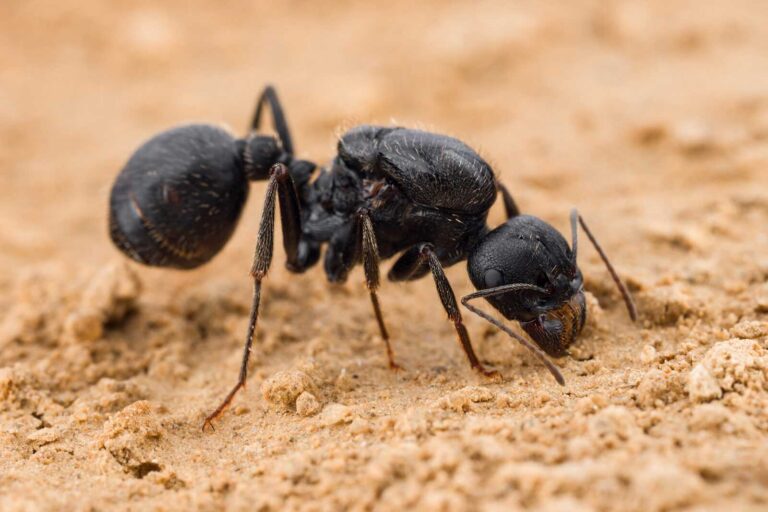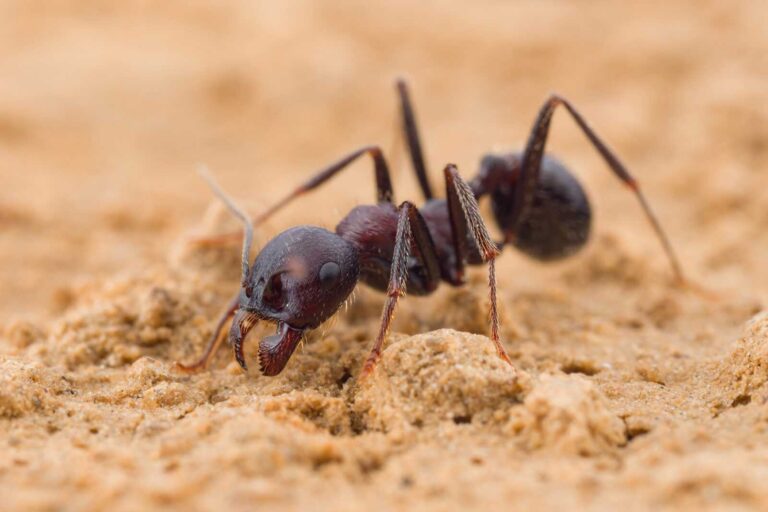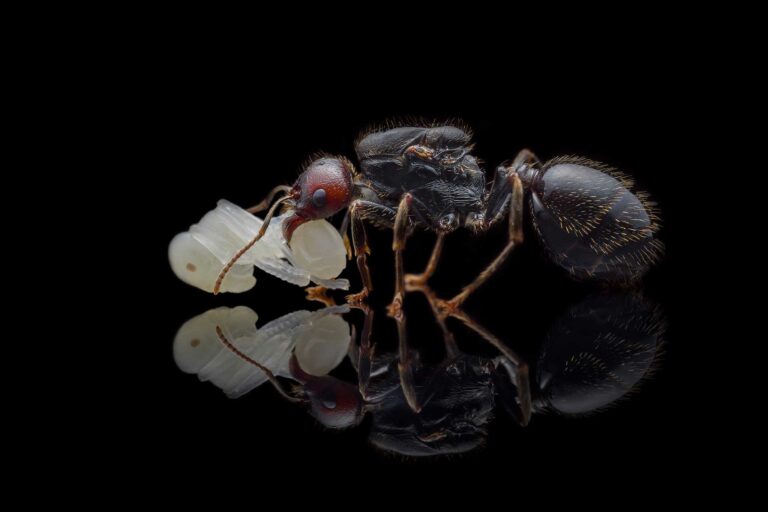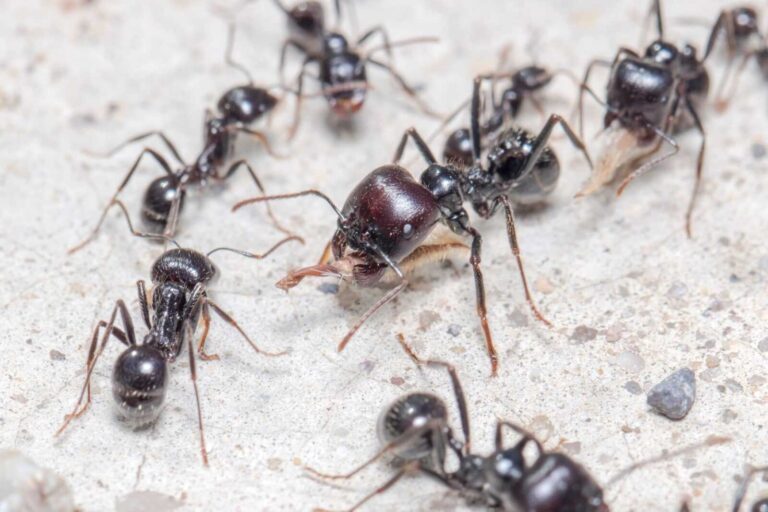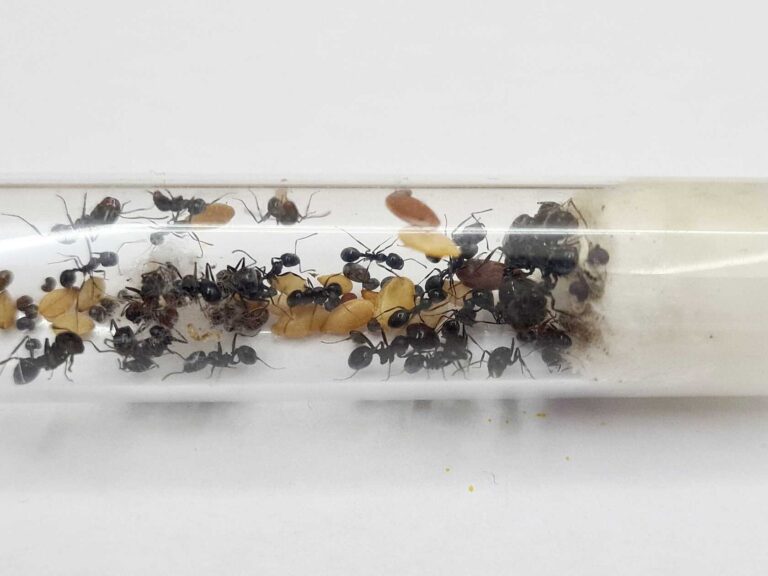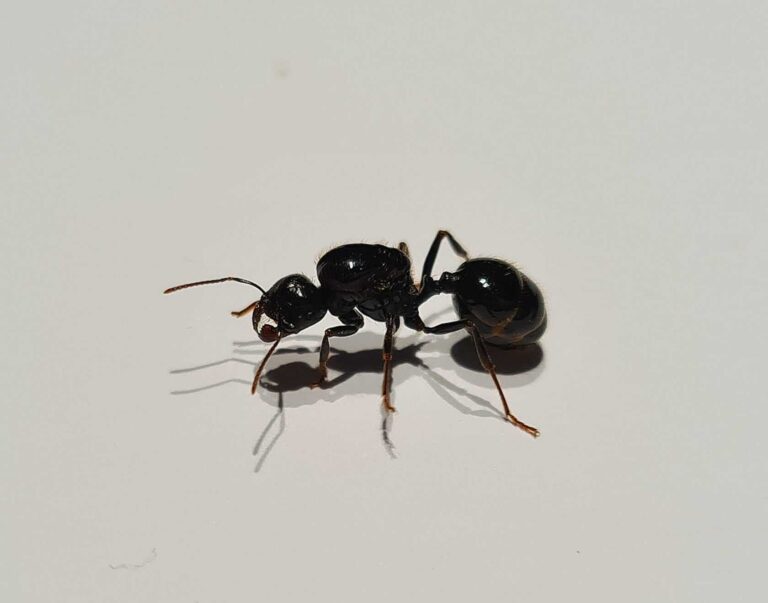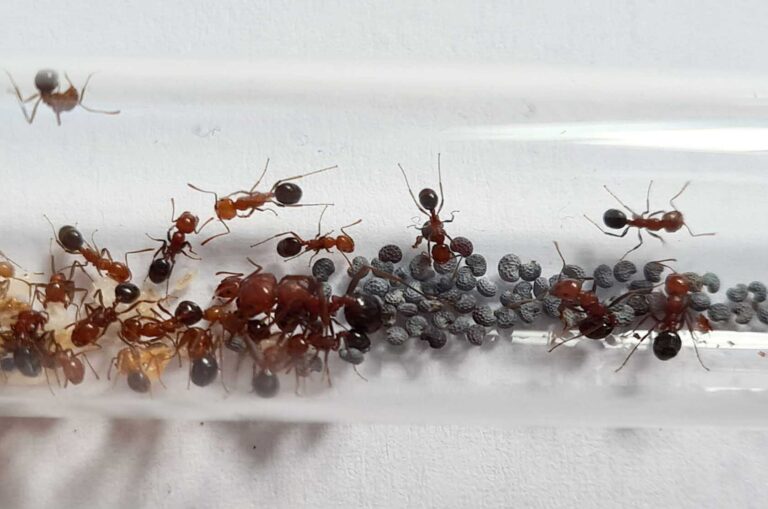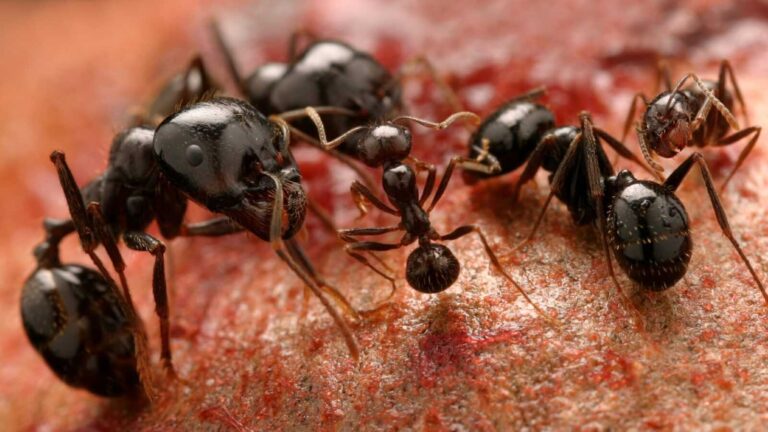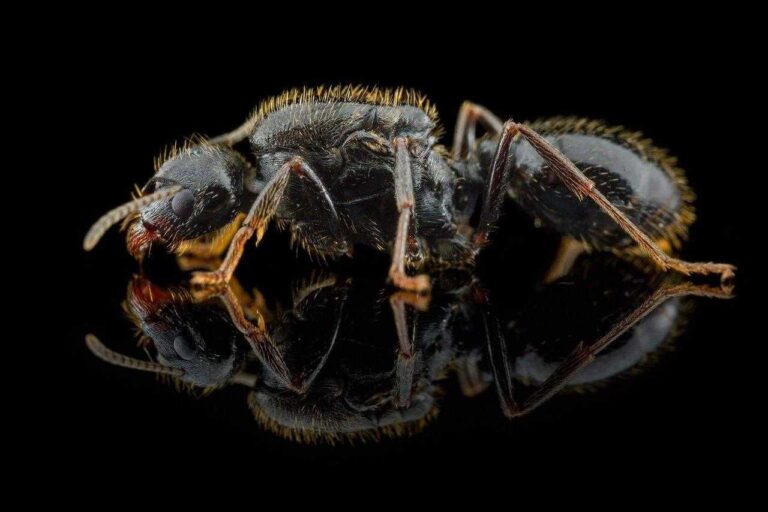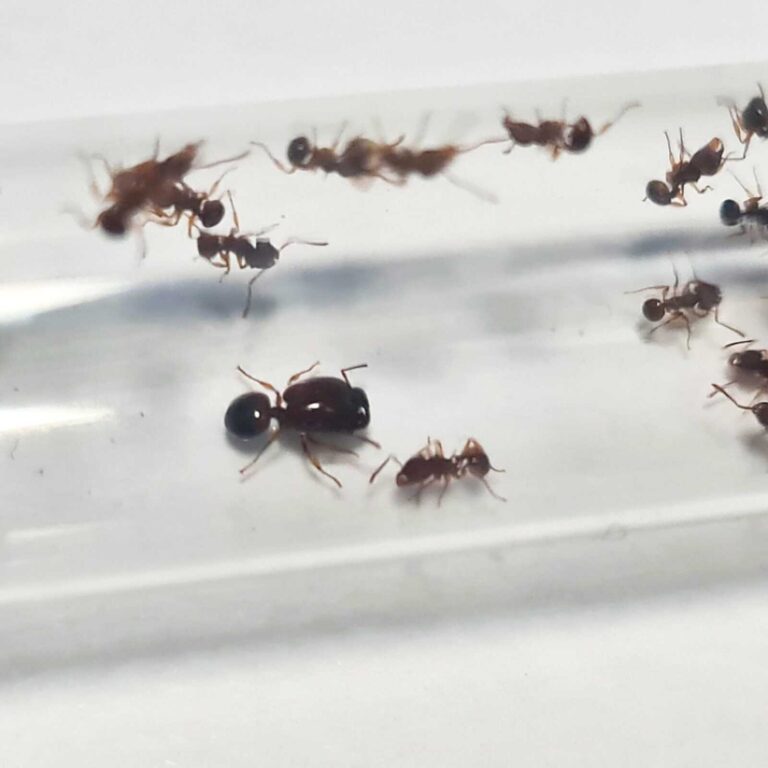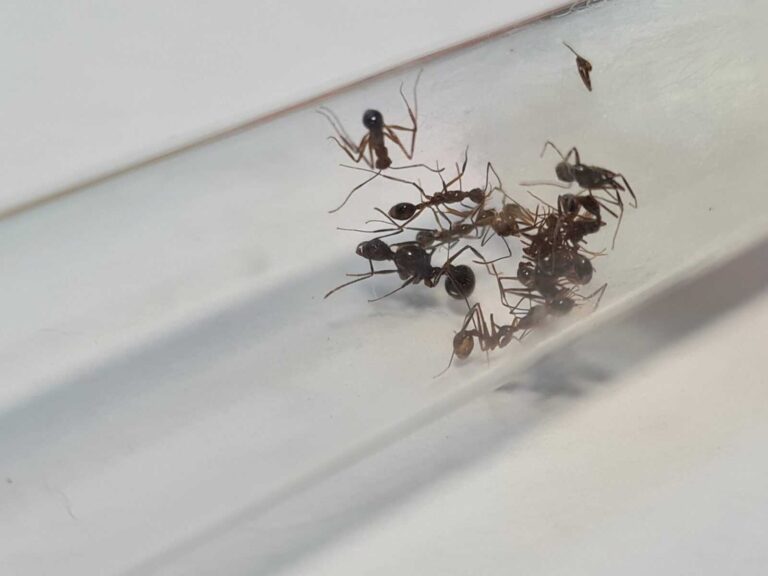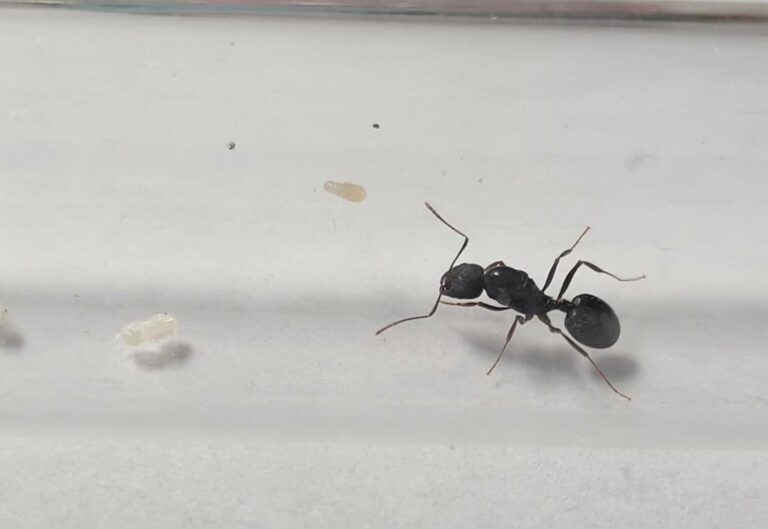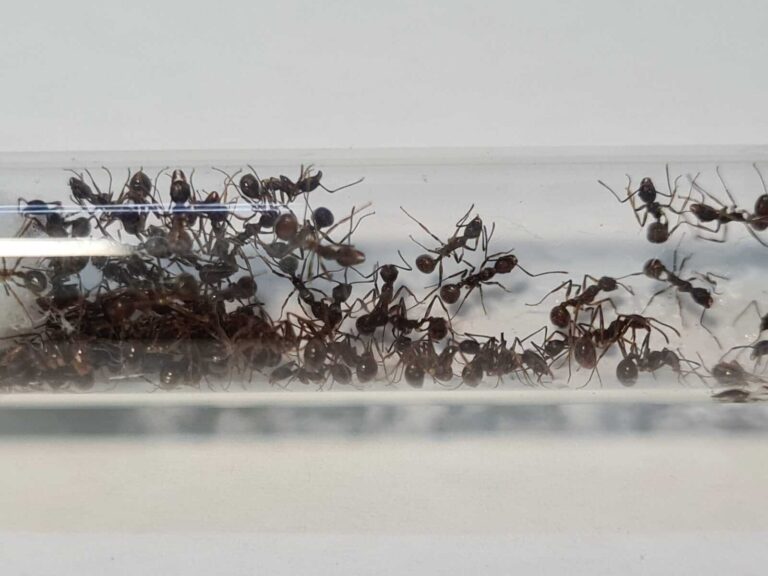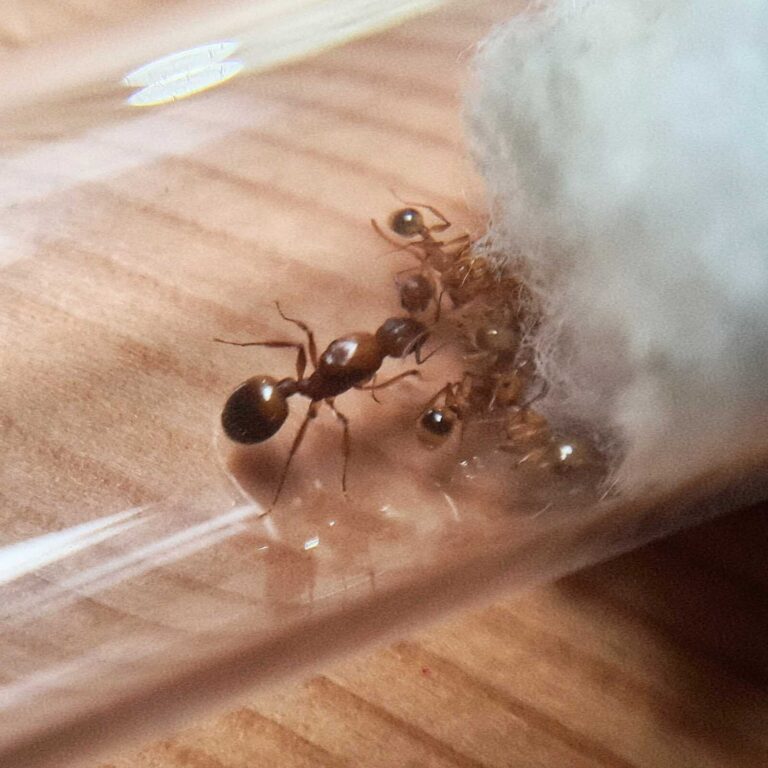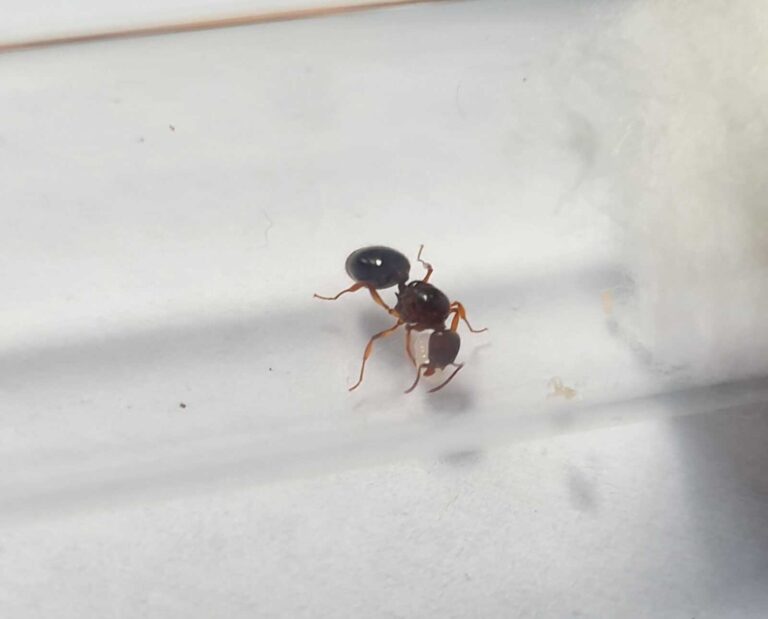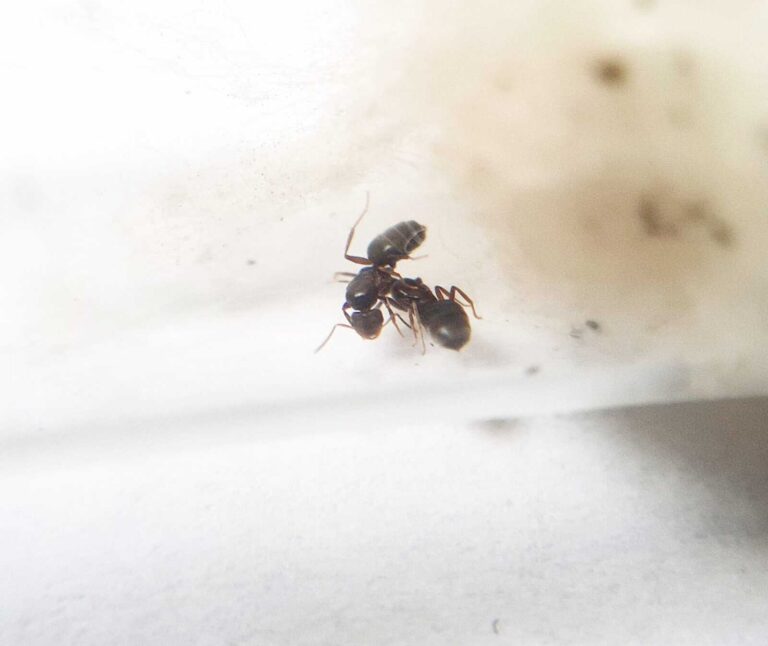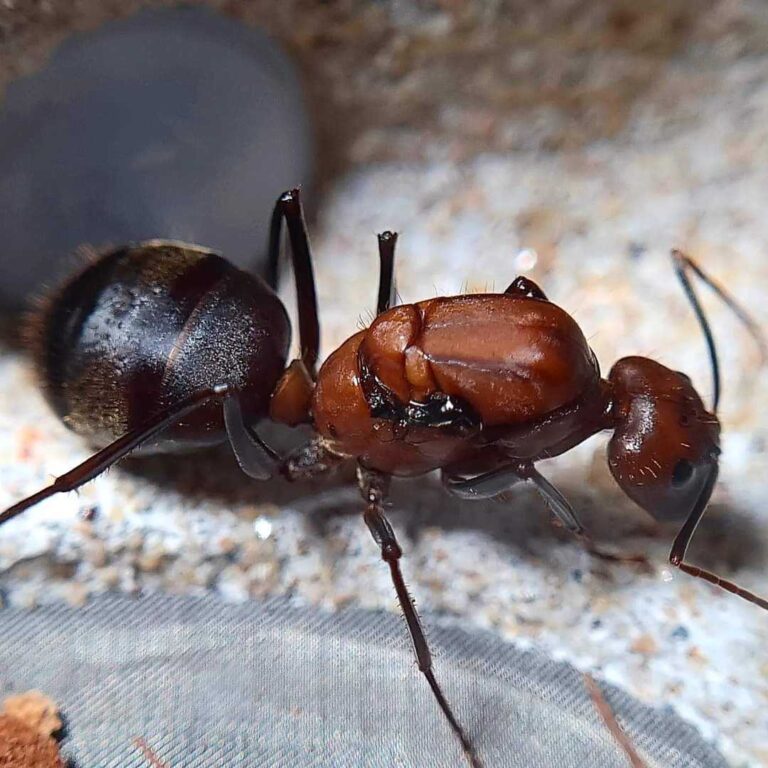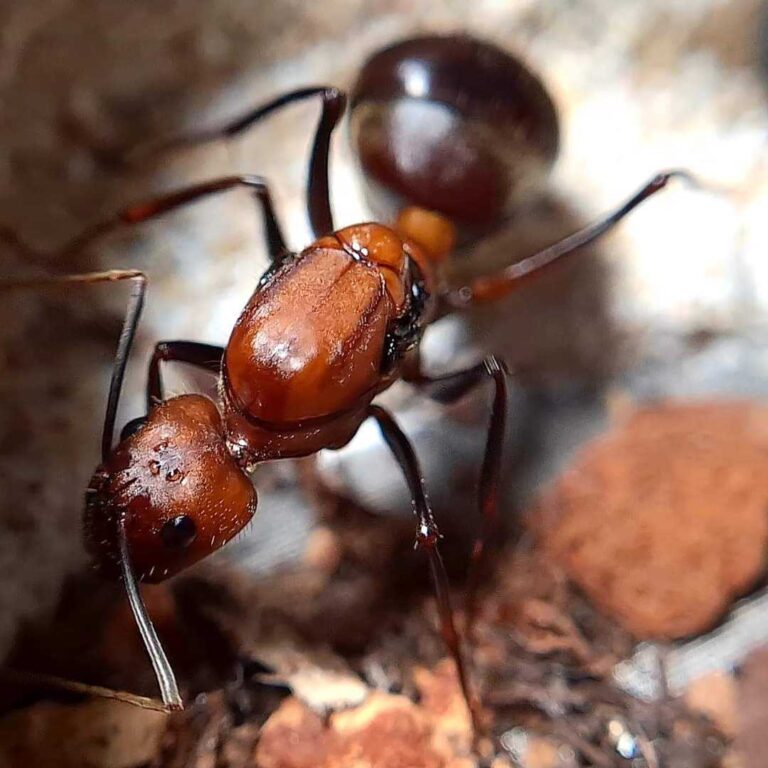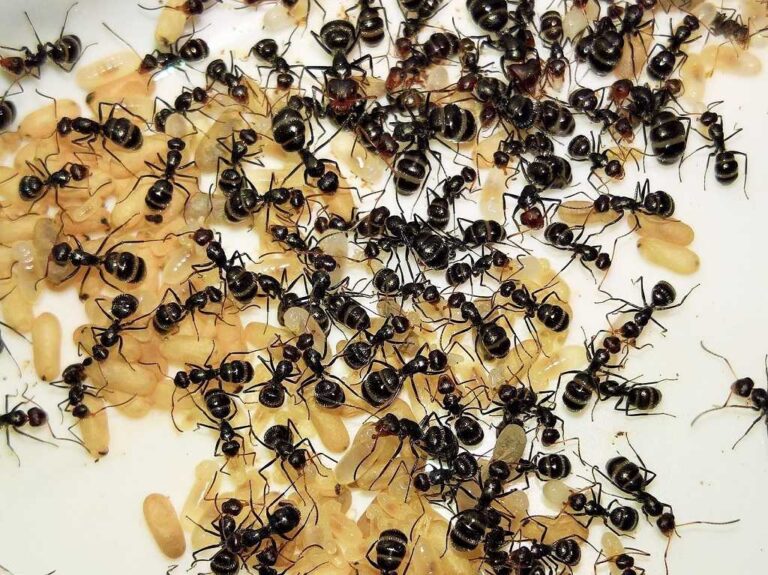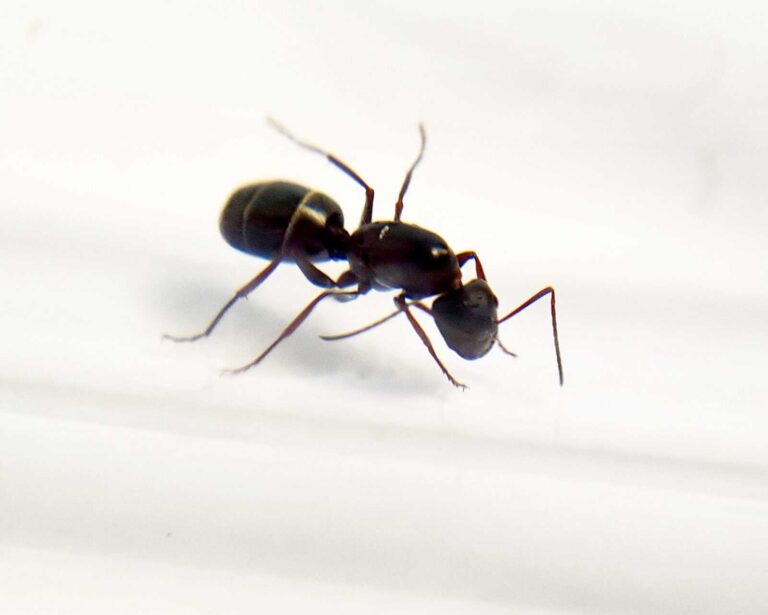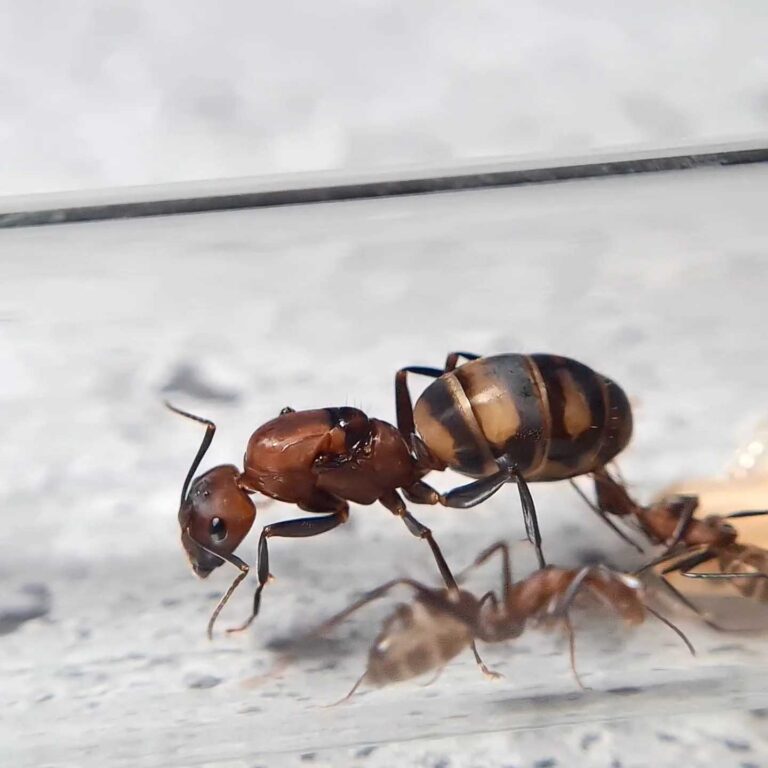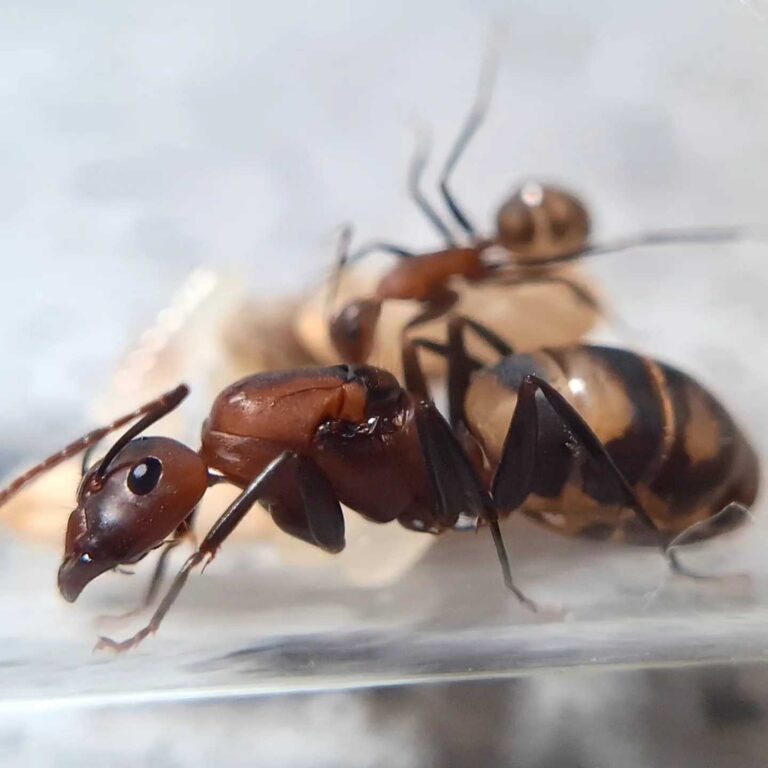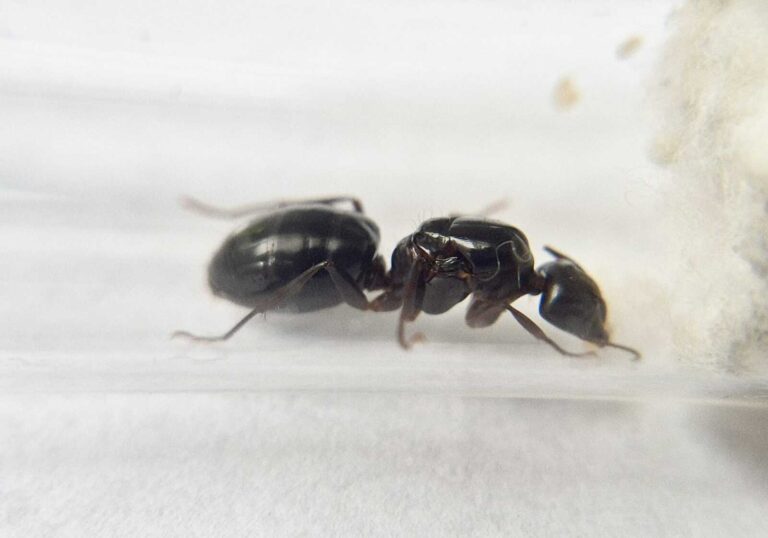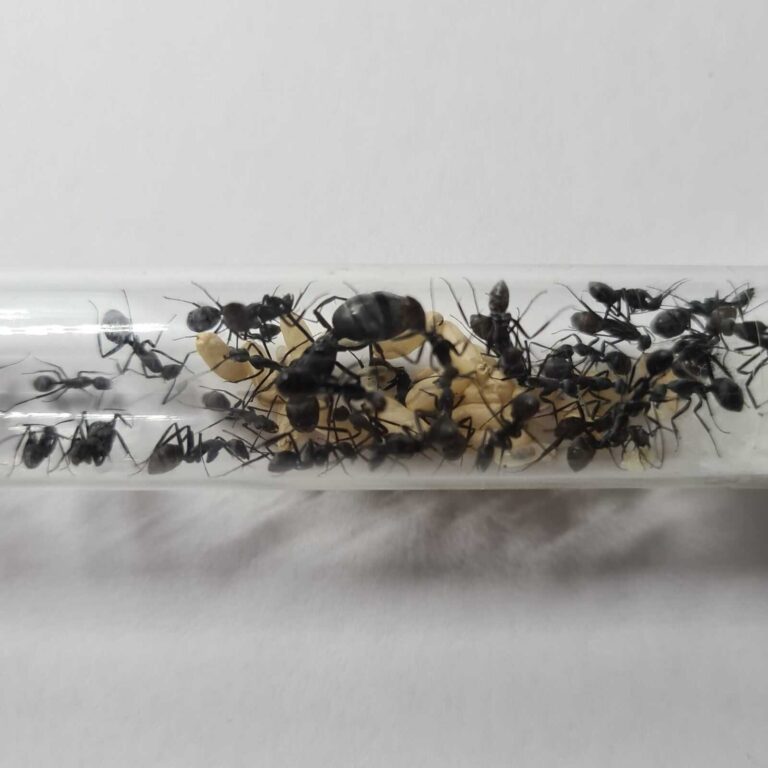Showing 21–40 of 74 results
- Queen 74
- Queen and 1-3 workers 74
- Queen and 4-10 workers 74
- Queen and 11-20 workers 74
- Queen and 21-40 workers 73
- Queen and 41-60 workers 73
- Queen and 61-100 workers 50
- Queen and 101-200 workers 5
- 2 Queens 6
- 2 Queens and 1-3 workers 6
- 2 Queens and 4-10 workers 6
- 2 Queens and 11-20 workers 6
- 2 Queen and 21-40 workers 6
- 2 Queens and 41-60 workers 6
- 2 Queens and 61-100 workers 3
- 2 Queens and 101-200 workers 2
- 3 Queens 3
- 3 Queens and 1-3 workers 3
- 3 Queens and 4-10 workers 3
- 3 Queens and 11-20 workers 3
- 3 Queens and 21-40 workers 3
- 3 Queens and 41-60 workers 3
- 3 Queens and 61-100 workers 2
- 3 Queens and 101-200 workers 1
MicroMicro 3
SmallSmall 22
MediumMedium 35
LargeLarge 10
HugeHuge 4
Messor arenarius, also known as the Harvester Ant, is a fascinating ant species that is perfect for collectors. It is the second largest species of Messor in the world and has unique behaviors that will captivate any ant enthusiast.
Messor barbarus is a monogynous ant species with a colony size of up to 10,000 workers. They have a medium development rate and come in various sizes, with queens measuring 11-14 mm and workers measuring 3-7 mm. They have a red head and dark body coloration. Their diet consists of food insects, fruits, vegetables, and seeds. The ideal humidity for these ants is not specified.
The Messor bouvieri is a monogynous ant species with colony sizes of up to 10,000 workers. The ants have a medium development rate and come in sizes ranging from 4-13mm. They are glossy black in color and feed on food insects, fruits, vegetables, and seeds. They require humidity levels of 30-50% in the arena and 50-70% in the nest.
The Messor capitatus ant colony consists of approximately 5,000 ants and has a monogynous colony type. The ants have a medium development rate and come in various sizes, with the queen measuring 13-16mm, workers measuring 5-10mm, and majors measuring 12-16mm. They are black in color and feed on food insects, fruits, vegetables, and seeds. The ants thrive in a humidity level of 30-50% in the arena and 40-60% in the nest.
Messor hebraeus is a species of ant with a monogynous colony type and a colony size of up to 5000 workers. The development rate is medium. The queen measures 11-14mm, workers 4-7mm, and majors 9-12mm. The ants have a black abdomen, body, and head stained orange. They consume food insects like cockroaches and crickets, as well as plant seeds. The recommended humidity for their arena is between 30-50%.
Messor ponticus is a polygynous ant species with a colony size of 5,000 workers. They have a medium development rate and range in size from 11-13mm for queens, 4-7mm for workers, and 7-10mm for majors. Their color is brown to brownish red, and they feed on insects, fruits, vegetables, and seeds. The recommended humidity levels are 30-50% in the arena and 70-90% in the nest.
Messor structor is a polygynous ant species with a medium development rate. The colony size can reach up to 5,000 workers. The ants are dark reddish brown in color and the queen measures 10-12mm, while workers range from 4-7mm and majors range from 7-10mm. Their diet consists of food insects and seeds. They require a humidity level of 30-50% in the arena and 70-90% in the nest. The temperature should be maintained at an appropriate level.
Acanthomyrmex mizunoi is a polygynous ant species with colonies that can contain up to 1000 workers. The development rate of this species is medium. The ants vary in size, with the queen measuring 4-6 mm, workers 3-4 mm, and majors 5-8 mm. They have a brown-red coloration. Their diet consists of food insects, syrup, fruits, vegetables, jelly, and cooked chicken without salt.
The Aphaenogaster feae is a monogynous ant species with colonies consisting of several thousand workers. They have a medium development speed and come in sizes ranging from 7-9mm for the queen and 3-5.5mm for workers. They are brown in color and their nutrition consists of food insects, syrup, fruits, vegetables, jelly, and cooked chicken without salt.
Aphaenogaster gibbosa is a monogynous ant species with a colony size of about 1000 workers. The development rate is medium. The queen measures 7-8 mm in size, while the workers are 3-4 mm. They have a brown color with yellowish legs. Their nutrition includes food insects, syrup, fruits, vegetables, jelly, and cooked chicken without salt.
Aphaenogaster schurri is a monogynous ant species with a colony size of up to 1000 workers. They have a medium development rate and come in sizes of 11-13mm for queens and 5-9mm for workers. Their color is brown and they feed on food insects, syrup, fruits, vegetables, jelly, and cooked chicken without salt.
Aphaenogaster splendida is a monogynous ant species with several thousand workers. They have a medium development speed and are sized at 6-8mm for queens and 3-4mm for workers. They are yellow-orange in color and their nutrition includes food insects, syrup, fruit, vegetables, jelly, and cooked chicken without salt.
Aphaenogaster subterranea is a species of ant with monogynous colonies of up to 1000 workers. They have a medium development rate and vary in size, with Queens measuring 7-8mm and workers measuring 3-4mm. They are brown in color and their nutrition consists of food insects, syrup, fruits, vegetables, jelly, and cooked chicken without salt.
Brachymyrmex laevis is a polygynous ant species with colonies consisting of several thousand individuals. They have a fast development speed and are brown-black in color. Their diet consists of insect food, syrup, fruit, vegetables, jelly, and cooked chicken without salt. Queens measure 3-5mm in size, while workers are 1-2mm in size.
The Camponotus angusticollis colony is monogynous and can have up to 1000 workers. They have a slow development speed. The queen measures 23-28 mm, workers are 12-18 mm, and majors are 17-25 mm. They are black and dark brown in color. Their nutrition includes food insects, syrup, fruits, vegetables, jelly, and cooked chicken.
Camponotus brevis is a monogynous ant species with a colony size of up to 2000 workers. They have a fast development speed and come in sizes ranging from 3.5 to 8.5mm. They are black-brown in color and their nutrition includes insect food, syrup, fruit, vegetables, jelly, and cooked chicken without salt.
Camponotus feae is a monogynous ant species with colonies consisting of several hundred individuals. They have a medium development speed and come in three different sizes: queen (12-14 mm), workers (5-9 mm), and majors (10-15 mm). They are matte black in color and their nutrition consists of various foods such as cockroaches, crickets, syrup, fruits, and vegetables.
Camponotus habereri is a medium-sized ant species with monogynous colonies that can reach up to 5000 workers. The queen measures 14-16 mm, while the workers are 5-9 mm and the majors are 8-13 mm. They have a brown-red color with a black abdomen and yellow spots. Their nutrition includes insect food, syrup, fruits, vegetables, jelly, and cooked food.
Camponotus largiceps is a species of ant with a distinct size and color. It requires specific nutrition and humidity levels, as well as temperature guidelines for proper development. Overall, Camponotus largiceps is a unique species that requires specific care and conditions for optimal growth and development.
The Camponotus petersii ant colony is monogynous and can have up to 5000 workers. They have a medium development rate. The queen is 13-15mm in size, while workers range from 4-9mm and majors are 7-10mm. They have a dark gray color with stripes on their abdomen. Their nutrition includes food insects, syrup, fruit, vegetables, jelly, and cooked food.


